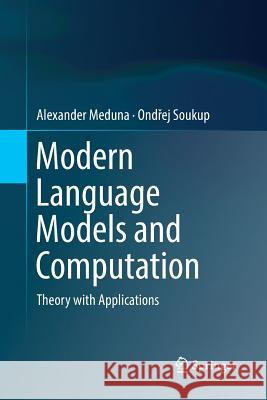Modern Language Models and Computation: Theory with Applications » książka
topmenu
Modern Language Models and Computation: Theory with Applications
ISBN-13: 9783319874739 / Angielski / Miękka / 2018 / 548 str.
Kategorie:
Kategorie BISAC:
Wydawca:
Springer
Język:
Angielski
ISBN-13:
9783319874739
Rok wydania:
2018
Wydanie:
Softcover Repri
Ilość stron:
548
Waga:
0.78 kg
Wymiary:
23.39 x 15.6 x 2.95
Oprawa:
Miękka
Wolumenów:
01
Dodatkowe informacje:
Wydanie ilustrowane











